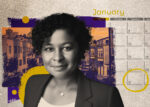Two warring affordable housing measures in San Francisco remained too close to call on Wednesday, although Proposition E, backed by the most progressive wing of the Board of Supervisors, seemed more likely to be defeated than Proposition D, put on the ballot by YIMBY groups and supported by Mayor London Breed and tech executives.
The San Francisco Department of Elections said Wednesday that it won’t release any additional election results until Thursday at 4 p.m. as it works through more than 100,000 uncounted ballots. As of the last update Wednesday morning, Proposition D and E had both failed to get 50 percent of the vote to streamline affordable housing permitting, but D was much closer to passing with 73,348 votes in favor and 74,623 votes against.
Measure E, authored by Supervisor Connie Chan and supported by progressives, seemed unlikely to pass since it had only 65,503 votes in favor. If both measures are able to get over 50 percent of the vote, the one with more votes will win.
Proponents for both D and E both claimed that the measures would streamline the approval system to create more affordable housing, with Measure D allowing for a higher income limit on what is considered “affordable.” D also fast-tracks developments with about 25 percent of affordable units, while the streamlining only kicks on for Measure E at 30 percent affordable. The current city requirement for affordable housing is about 22 percent.
Measure D also requires that the San Francisco Planning Department reject or approve a development that fits the affordability requirements within 60 days or it will automatically be fast-tracked for approval. Measure E does not include the automatic fast-track after 60 days.
If D does pass, it remains a question of how effective it would be in helping the city reach its state-mandated goal of creating 82,000 housing units before 2030. Developers have said they need fees and inclusionary zoning to come down in order for construction projects to pencil in the current economic climate, and many housing projects that are already entitled are not moving forward because developers say it’s economically infeasible to build them.
City residents voted decisively on Tuesday against a parcel tax to benefit beleaguered City College and created a new oversight commission for the Department of Homelessness and Supportive Housing, according to San Francisco Chronicle results. Measure M, which proposes a vacancy tax on apartments left empty for more than six months, was also too close to call but seemed likely to pass.
Read more



